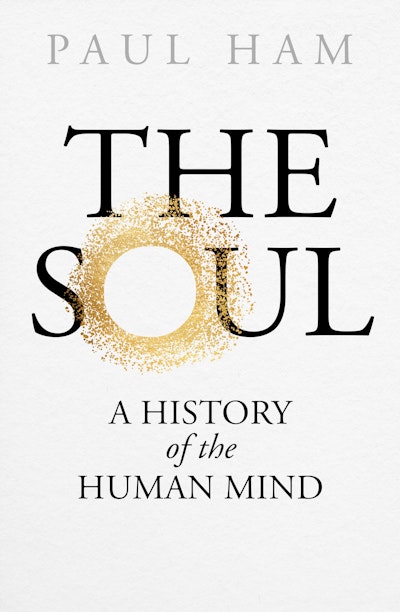- Published: 30 July 2024
- ISBN: 9780143781349
- Imprint: Penguin
- Format: Hardback
- Pages: 880
- RRP: $49.99
The Soul
A History of the Human Mind
Extract
This is a history of the soul, or what we now call the mind, the mysterious inner voice that wills us to think and act and is unique to each of us.
For centuries your soul was believed to be your disembodied spirit, destined for Heaven or Hell after the death of the body. Today our minds are understood as the product of our brains, the factory of our thoughts and beliefs and willpower.
And yet, the strange, subjective nature of our minds continues to bewilder neuroscientists and frustrate institutional religions. What differentiates our minds? Why is my truth, your lies? Why is my good, your evil? What is the source of those beliefs? And why do people seek to impose their beliefs on others, often lovingly, sometimes violently?
Sapiens’ cerebral history began with the creation of the gods by Stone Age men. It may end with the attempt to replicate human consciousnesses in our own age. In the intervening 300,000 years, our brains have made a series of extraordinary evolutionary leaps, from the dimmest tremors of self-consciousness in prehistoric hominins to the self-willed intelligence of modern humans, rendering us capable of the most vicious cruelty and the gentlest acts of compassion.
How our souls or psyches arrived at where they are today is an astonishing journey of self-discovery. En route we shall explore the first signs of self-awareness in prehistoric humans; the earliest Egyptian conceptions of consciousness and immortality; the Hindu and Buddhist ideas of karma and rebirth; the ancient Chinese and Greek theories of self; the origins of the Jewish belief in their ‘chosenness’; the rise of the Christian spirit that broke the Roman Empire; the unification of the Arabs under Muhammad, which drove the early Islamic conquests; the hope of salvation that animated the crusading Christians; the fractured beliefs of the Reformation; the missionary spirit that harvested souls for Western empires; the Biblical justification of enslavement; the ‘rational’ soul/mind of the Enlightenment and revolutionary eras; the return of ‘theocrats’ and ‘theocracy’ (which the media miscast as the ‘Far Right’); and the liberation of the souls and minds of women, so long enchained in the world of men. We will also enter the dark night of the soul under totalitarian rule, contemplate the harrowing of the modern mind, and glimpse the synthetic consciousness of artificial intelligence. Along the way, we’ll explore how the changing interpretations of our souls/minds have willed the greatest events in the history of humankind.
Nobody has attempted such a journey before. The German philosopher Georg Wilhelm Friedrich Hegel’s Philosophy of Mind and The Phenomenology of Spirit chronicled the liberation of consciousness, but his works were not histories as we understand them.
The closest comparison is the French philosopher Nicolas de Condorcet’s Sketch for a Historical Picture of the Progress of the Human Mind, written in 1794 while he was hiding from the Terror. His ‘bible of progress’ is a masterpiece of wishful thinking that knowledge would lead us to the Promised Land of reason and social justice, rid of zealotry and superstition.
Alas, in relegating religion to science, Condorcet gravely underestimated the persistence of faith and belief as the drivers of human thought and action. Like Condorcet, self-described ‘realists’ in our time think of human beings as ‘rational actors’ who behave according to reason. Like Condorcet, ‘realists’ underestimate the power of faith, belief and ‘unreason’ over the human mind and the course of history.
Beliefs are the engines of human history. That is a core idea animating this book. And the source of those beliefs is the mind, or what for millennia we called the soul.
*
Almost everyone thinks they have one, but nobody knows what it is. Modern notions of ‘the soul’ are so prolific, so protean, no wonder people struggle to explain it. Jobs, relationships, people can be ‘soul-destroying’. Most people seem to think they will find a ‘soulmate’. Leaders long to be identified as the ‘soul of the nation’.
In this sea of confusion stands a rock: the great religions have always claimed to know precisely what your soul is, and where it is going after your body dies: to Heaven or Hell. For the sake of the ‘salvation’ of their souls, countless religious believers have waged war, conquered worlds and forcibly converted ‘heathens’ to their belief systems. For people of faith, the ‘soul’ was and forever will be the trembling spirit of the inner being, judged after we die to be saved or damned.
Every society has had a word for it – anima, atman, jiva, ba, ka, hun, po, nefesh, ruach, psyche, shade, logos, breath, ruh, nafs, thetan, roohu, holy ghost, spirit, quiddity, to name a few. In modern times we have spoken of the self, consciousness, ego and superego, mind, essence, animus, identity, core, conscience, vim, verve, centre, ‘I’, ‘me’. All terms strive to express the strange entity through which a person lives, feels, thinks and wills.
Is the soul/mind a substance? A passenger trapped in your body? Slave or master? The tug of conscience? The source of love and hatred? What distinguished the ancient Aztec, Inca and Aboriginal ideas of the soul/mind from those of their conquerors? What distinguishes the Hindu and Buddhist ideas of the soul/mind from the Christian, Muslim and Jewish ones? Who or what decided whether your soul would be ‘saved’ or sent to Hell? Why is the Faustian contract – the idea of selling your soul to the Devil – so resonant in the secular West, not least among atheists? Why has the ‘religious soul’ survived neuroscientific advances that should have extinguished it?
In seeking to answer those and many more questions, The Soul explores the emergence, recognition, salvation, institutionalisation, decay and destruction of this unfathomable vehicle of human consciousness, the spiritual clay that both Plato and Saint Augustine, pagan and Christian, understood as immortal, corruptible, faithful, deceitful, capable of free will, able to choose between right and wrong, the very substance of what it means to be human – the whisper of the eternal ‘I’ of the human mind.
*
The idea at the core of The Soul is that belief is the engine of human history, regardless of whether the thing you believe in – a god, a messiah, a promised land, a prophecy, a political utopia – exists or will ever exist.
The events that shape and drive history – e.g. the way societies form and are structured, the conflicts between competing societies (and within them), the art and the ideas they produce – have been propelled by beliefs of the mind, and that this is true across all human societies everywhere, and always. Countless people have lived their lives believing in and fighting for the fulfilment of an open-ended prophecy that promised a religious or political utopia.
For this reason, The Soul anchors the ‘self’ not in questions like ‘who am I’ and ‘why am I here’ (which are impossible to answer), but in belief: In what do I believe? Why do I believe it? From whom or what did I get those beliefs? If I’m sitting on the shoulders of giants, who are they? Who contains ‘me’? What am I prepared to do to defend or enforce my beliefs?
The Soul will show that our beliefs are the ‘first movers’ of historical events. Systems of belief have relentlessly shaped the human story. To understand how, we need to return to their origins, to the genesis of belief. We need to understand how those beliefs – religious, political and ideological – took hold of the human soul/mind and enchained, liberated, inspired and tyrannised our lives.
It matters little whether the gods or ideas or ideologies in which people believed, and still believe, were fact or fiction, truths or fantasies. What matters is that enough people believed in them. And the force of mass belief, exploited by charismatic leaders, fomented the greatest upheavals in human history: war, conquest, enslavement, revolution, liberation, conversion, sublimation, illumination. All were consequences of the power of belief.
Together we’ll see how the soul/mind has been interpreted through time – how it has been animated, reincarnated, immortalised, loved, chosen, harvested, conquered, saved, sublimed, inflamed, illuminated, unchained, exterminated, fragmented and hacked. We’ll visit the caverns of the unconscious and the airy heights of the superego. We’ll probe the ganglions of guilt and the fronds of co-dependent hatred.
For most of my life as a writer, I’ve written about conflict. I’ve studied the experiences of traumatised servicemen and women and their families. I’ve listened to civilian victims of atrocities and the survivors of holocausts. I’ve heard the whisper of the unknown soldier, the cry of the child in time, the scream of massacred innocents. And I’ve seen people at their most compassionate and self-sacrificial, ordinary men and women enacting the most beautiful expression of love ever written: ‘Greater love has no one than this: to lay down one’s life for one’s friends.’ Those experiences have taught me something about human nature in extremis without which I could not have written this book.
Writing The Soul has changed my life; reading it may change yours.













